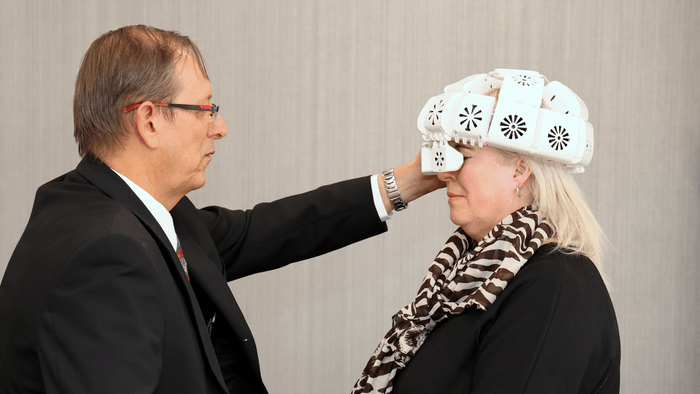BEIJING, China — Dementia patients may see their symptoms fade thanks to a new procedure which zaps their brains with light beams, a new study explains. The technique called phototherapy boosts memory, thinking, and processing skills, according to a team in China.
Lamps placed within two feet of the patients exposed them to bright, LED or blue and green light. The sessions lasted up to two hours.
“It may be one of the most promising non-pharmacological interventions for improving core symptoms of dementia,” says corresponding author Dr. Feng Shao of Peking University, according to a statement from SWNS.
The Chinese team pooled data from 12 studies involving 766 patients, 426 of whom received the treatment with the others acting as controls.
“It should be noted that the light box was placed 60cm away from the patient at or above the patient’s eye level,” researchers add.
Ceiling-mounted devices can also achieve the same results although installation expenses are higher.
“However, the demand for staff is significantly lower and patients’ daily routines and treatment plans are minimally disrupted, which contribute to better compliance,” the team continues.
In recent years, scientists have used helmets and glasses on dementia patients, employing light of a specific wavelength with a duration of about 15 minutes.
“Such portable devices allow for better control of light intensity and are ergonomic without interfering with patients’ normal activities,” Dr. Shao’s team notes.

There were no significant adverse side-effects reported. The use of light to reveal ailments date back to ancient Greece.
“Further well-designed studies are needed to explore the most effective clinical implementation conditions, including device type, duration, frequency and time,” study authors write. “Our study had several strengths. This review focuses on the impact of phototherapy interventions on the core performance of cognitive function in patients with dementia.”
“The review analyzed the effects of phototherapy intervention more comprehensively than previous meta-analyses and adds to the evidence base in favor of the implementation for patients with dementia.”
The number of dementia cases of dementia worldwide will triple to more than 150 million by 2050, according to current estimates. This is mainly the result of growing aging populations around the world.
The study is published in the journal Brain and Behavior.
South West News Service writer Mark Waghorn contributed to this report.

